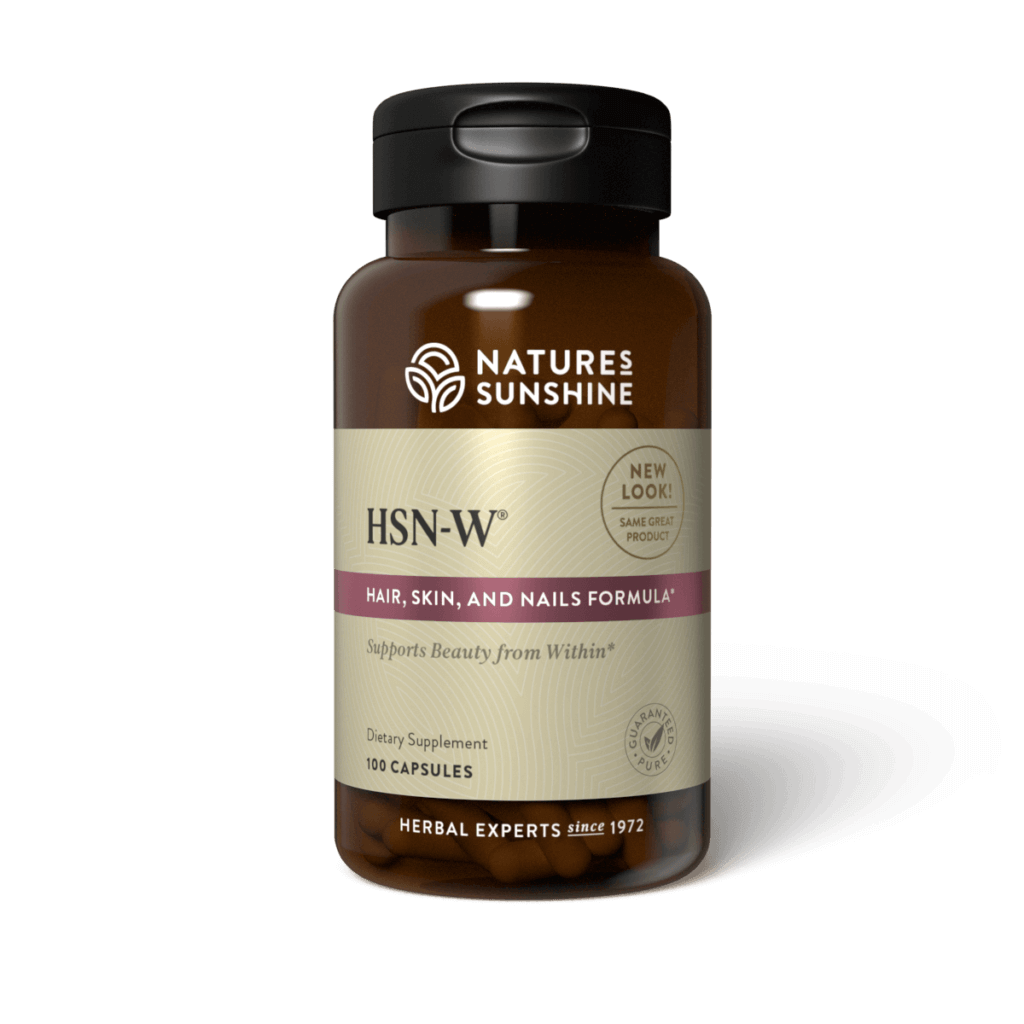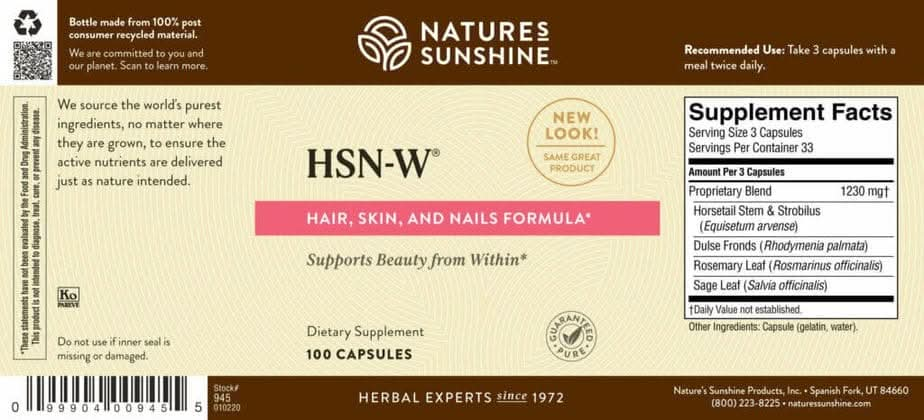The Herbs Place
HSN-W
HSN-W
Couldn't load pickup availability
Benefits
• Strengthens the hair and nails.
• Enhances skin tone.
• Supports structural health.
You may need more silicon in your diet and this herbal combination is a way to get it. It contains two of the richest sources of organic silicon in the plant kingdom - Dulse and Horsetail.
Silicon is an element that works with calcium to improve the strength and flexibility of the structural system of the body. Calcium is hard and brittle (like chalk), but when silicon combines with calcium and other minerals for bones, nails, hair, and teeth, it adds flexibility to the strength.
Silicon also improves skin tone and sheen and load bearing capacity of joints. It plays a role in nerve function as well, being part of the nerve sheath (myelin sheath) which protects and insulates the nerve fibers.
Western diets tend to be low in silica. The coarse, fibrous parts of the plant which contain the most silicon (husks, stems, peelings, cores, etc.), are not part of our diet. They are usually discarded.
About the Ingredients
Dulse -
A form of seaweed and one of the richest sources of silicon. If you've ever examined seaweed washed up on the shore, you probably noticed that it is flexible, but tough to tear. This is the major characteristic which silicon imparts to plants and animal tissue - strength with flexibility. Dulse is rich in iodine which is important for the proper functioning of the thyroid gland, which is important for healthy hair, skin and nails. Dulse also contains many other trace minerals essential for health in general.
Horsetail -
This is probably the single best source of silicon. It is known as joint grass because the long slender 'grass-like' stems have little joints where it is easy to pull the stem apart. The stems may come apart easily at the joints, but it is difficult to tear them in between the joints in the mature plant - a good indication of the presence of silicon.
Sage -
This astringent herb has a long history of use for the hair, sweat glands, and skin. The tea has been used as a hair rinse to restore normal color to hair. The plant has a strong effect on the sweat glands and has been used to stop night sweats and act as a natural deodorant from the inside out.
Rosemary
also has a long history of use for hair, being a common ingredient in herbal shampoos. It is known to stimulate the scalp and promote hair growth. It is quite possible that the aromatic properties in sage and rosemary help to stimulate blood flow to the skin and scalp also.
Ingredients per Capsule
Proprietary blend 410 mg
Dulse Fronds (Rhodymenia palmata )
Horsetail Stems and Stobilus (Equisetum arvense )
Sage Leaves (Salvia officinalis )
Rosemary Leaves (Rosmarinus officinalis )
Recommended Use
Take three capsules with a meal twice daily.
Customer Comments
Shingles -
"My child was six years old and began having "skin problems." We had a neighbor who was a dermatologist so I took him down there and he said it was shingles. I'd heard nightmare stories about that and he did inform me that since he was so young and had them, he would have problems with them for the rest of his life. I was already familiar with what herbs could do so he began taking HSN-W
to feed the skin, Stress-J and NUTRI CALM for the nerves and VS-C to kill the herpes virus. In two weeks it was totally cleared up and it's been four years now and he's never had another problem. I'm thankful for what the herbs are able to do for the body." K.J.




